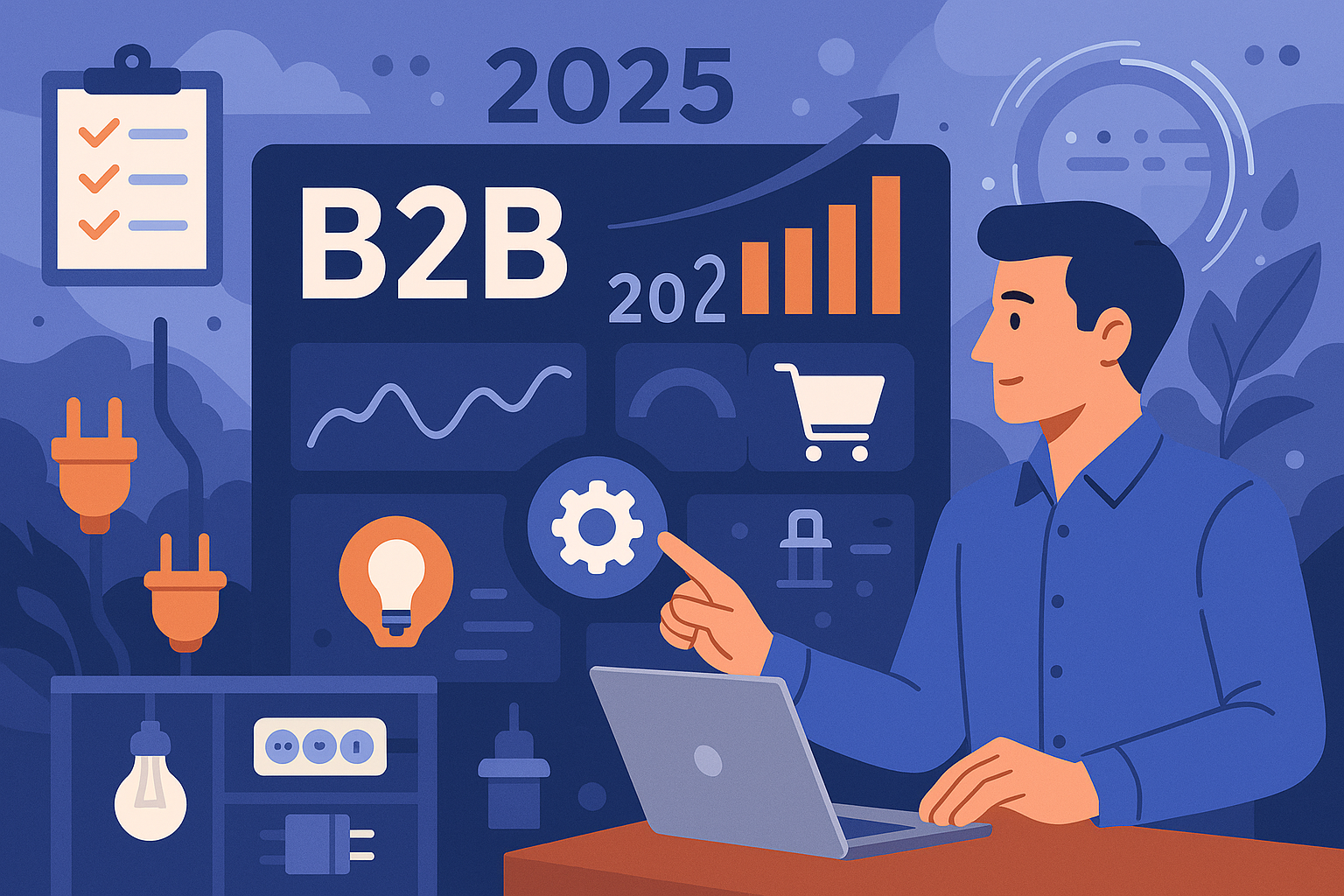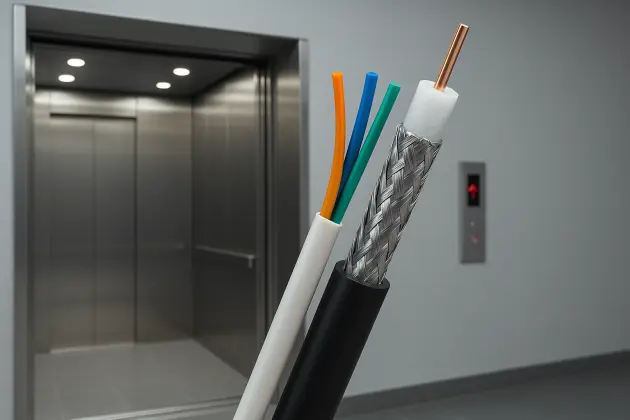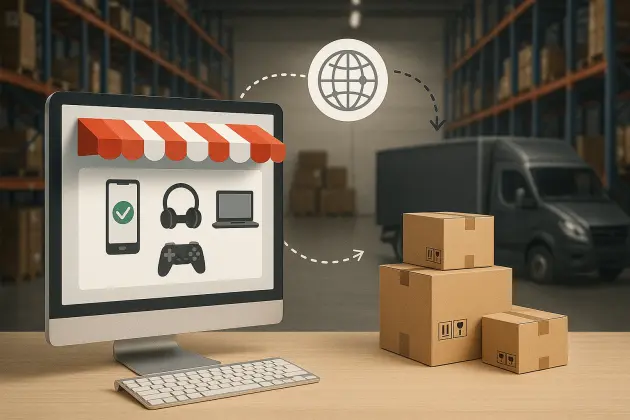-
-
0

The Future of B2B Commerce for an Electrical Products Wholesaler in 2025
In the rapidly evolving landscape of B2B commerce, electrical products wholesalers are facing a critical turning point. As we move deeper into 2025, the sector is undergoing a major transformation driven by digitalization, automation, supply chain innovation, and shifting customer expectations. For electrical wholesalers who want to stay relevant and profitable, adapting to these changes isn’t optional—it’s essential.
1. Digital transformation is now a necessity, not a choice
Traditionally, the electrical products wholesaler model relied heavily on personal relationships, bulk ordering, and in-person transactions. But in 2025, buyers are looking for Amazon-like convenience—even in B2B. Distributors must invest in user-friendly eCommerce platforms, real-time inventory tracking, and digital catalogs. Online ordering, mobile-first experiences, and automated quotations are becoming the new norm.
Key Takeaway: Embracing digital platforms will allow wholesalers to reach more customers, improve order accuracy, and streamline operations.
2. AI and Automation Are Revolutionizing Operations
Artificial Intelligence (AI) and automation are reshaping how wholesalers manage inventory, forecast demand, and engage with customers. Predictive analytics tools can now anticipate which electrical components are likely to be in high demand based on seasonality, industry growth, and past purchasing trends.
Warehouse automation, including robotic pick-and-pack systems, speeds up fulfillment and reduces errors, while chatbots and AI-driven customer service tools handle inquiries around the clock.
Key Takeaway: AI and automation reduce operational costs, increase speed, and enhance customer satisfaction.
3. Sustainability Is Becoming a Competitive Advantage
Sustainability is no longer a buzzword—it’s a buying criterion. Businesses that source electrical supplies increasingly expect their wholesalers to offer energy-efficient, eco-friendly products and demonstrate sustainable operations. From recyclable packaging to low-energy lighting solutions, being green is good for business.
Key Takeaway: An electrical products wholesaler that prioritizes sustainability gains trust and long-term loyalty from environmentally conscious buyers.
4. Personalized B2B Experiences Are in Demand
Today’s B2B buyers expect the same personalized experiences they get as consumers. This means dynamic pricing, customized product recommendations, and tailored marketing campaigns. By leveraging CRM and marketing automation platforms, wholesalers can segment their clients and deliver relevant offers based on purchase history and preferences.
Key Takeaway: Personalization improves customer engagement and increases repeat business.
5. Data-Driven Decision Making Is Leading the Way
Electrical wholesalers are now using data analytics not just for sales and inventory, but also for pricing strategies, supplier performance, and customer behavior. Cloud-based ERP systems give businesses a 360-degree view of operations, helping them make faster, smarter decisions.
Key Takeaway: Data-driven strategies lead to improved efficiency and profitability.
6. Omnichannel Is the Future of B2B Sales
In 2025, relying on a single sales channel is outdated. Successful electrical wholesalers are embracing omnichannel selling—combining online stores, inside sales teams, field reps, and marketplaces. This integrated approach ensures consistent messaging and accessibility, no matter where or how a customer chooses to buy.
Key Takeaway: A strong omnichannel presence drives customer loyalty and increases order volume.
Stats
According to a 2024 Gartner report, 80% of B2B sales interactions between suppliers and buyers will occur in digital channels by the end of 2025.
A McKinsey study revealed that companies using advanced analytics in B2B supply chains see a 15% increase in operational efficiency on average.
Final Thoughts
As the landscape of B2B commerce continues to evolve, Multybyte stands at the forefront as a trusted electrical products wholesaler, leading the industry with innovation, quality, and customer-centric solutions. By embracing digital transformation, AI integration, and sustainable practices, Multybyte empowers businesses with seamless ordering, real-time inventory, and scalable supply chain solutions. Our commitment to providing high-performance electrical products and value-added services positions us as a preferred partner for businesses looking to grow in 2025 and beyond. Multybyte is not just keeping pace with the future—we are helping to define it for the entire electrical wholesale sector.
FAQs
1. What are the major B2B trends for electrical products wholesalers in 2025?
In 2025, key trends include digital transformation, AI-driven operations, sustainability, omnichannel sales, and personalized B2B customer experiences.
2. Why is digital transformation important for electrical wholesalers?
Digital transformation improves operational efficiency, enhances customer service, enables real-time inventory management, and opens up new sales channels.
3. How can electrical products wholesalers use AI in their business?
AI can be used for demand forecasting, chatbots, inventory automation, customer segmentation, and predictive sales analytics.
4. What role does e-commerce play in B2B electrical wholesale?
eCommerce enables 24/7 ordering, product search, instant quotations, and a smoother customer journey, which is critical in today’s fast-paced B2B environment.
5. How can an electrical products wholesaler become more sustainable?
By offering energy-efficient products, using eco-friendly packaging, reducing waste, and optimizing logistics to cut down carbon emissions.
6. What is omnichannel selling and why does it matter in B2B?
Omnichannel selling combines online platforms, sales reps, and marketplaces to provide a consistent buying experience across multiple channels.
7. How can personalization improve B2B sales for wholesalers?
Tailored pricing, product recommendations, and content help build stronger client relationships and increase repeat business. Sign up today
8. What tools can help electrical wholesalers succeed in 2025?
CRM systems, ERP software, AI-based inventory tools, and B2B eCommerce platforms are essential for staying competitive in 2025.





